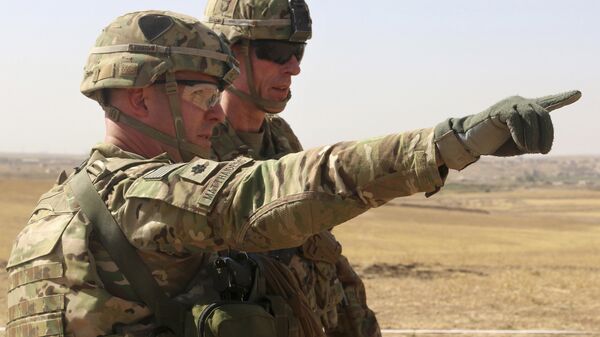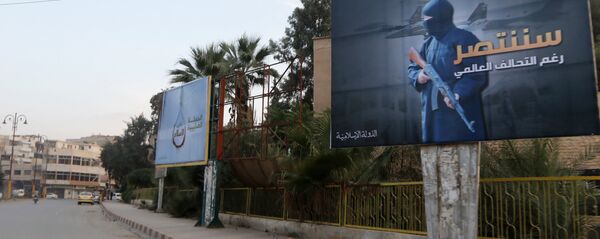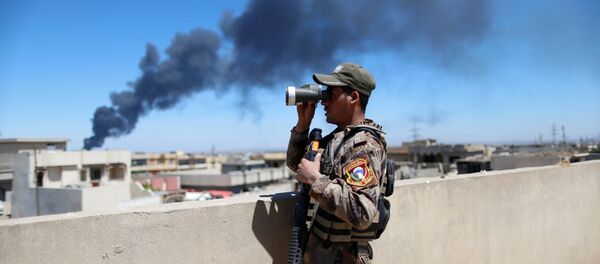Former Under Secretary of Defense for Policy during George W. Bush's second term Eric Edelman, who is now a senior fellow at defense think tank the Center for Strategic and Budgetary Assessments (CSBA), said in an interview that 4,000-8,000 soldiers would probably be "sufficient" to supplement Iraqi security forces after Daesh is driven from Iraq entirely.
But the number could climb to 20,000, said Edelman. He mentioned that the soldiers would serve as advisers and supplementary soldiers to finish mopping up Daesh remnants after the last of their forces are driven from Mosul.
Daesh has been driven back throughout Iraq, and their capital of Mosul has been almost entirely retaken by coalition forces. With their ambitions of statehood seemingly dashed, Daesh will likely revert to a network of insurgent cells.
American forces know a thing or two about that, having spent the last 16 years fighting decentralized terrorist and insurgent groups in the Middle East.
CSBA Senior Fellow and Johns Hopkins Professor of Global Affairs Hal Brands said that there is "an imperative for some kind of residual U.S. military presence in Iraq." The last time US forces left Iraq in 2011, Daesh rose up to fill the power vacuum.
American diplomats and Iraqi Prime Minister Haider al-Abadi are in the midst of negotiations of a Status of Forces Agreement (SOFA), which will outline the specifics of a long-term US military presence in the beleaguered Cradle of Civilization.
Numerous Iraqi factions oppose a continued American presence in Iraq, including influential Shi'ite cleric and politician Muqtada al-Sadr and several prominent parliamentarians. Edelman suggested that al-Abadi will most likely sidestep parliament entirely through executive action. Al-Abadi's predecessor, Nouri al-Maliki, failed to push a SOFA through parliament in 2011 which caused the initial US pull-out.
"My hope is the experience of 2014 may prove that … it may be worth paying a political price for keeping US forces in the country," said Brands.
On the US side, concerns over the growing political power of Iran in their once-bitter rival Iraq could motivate the presence of US forces as a counterbalance to keep Iraq in the American bloc. "One of the problems in the [coalition] campaign is that the partner [forces] hate each other more than they hate [Daesh]," said Brands. "As [Daesh]gets closer to defeat, those underlying conflicts … are coming to the surface in a major way."




